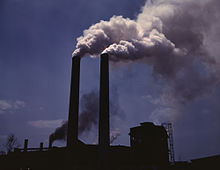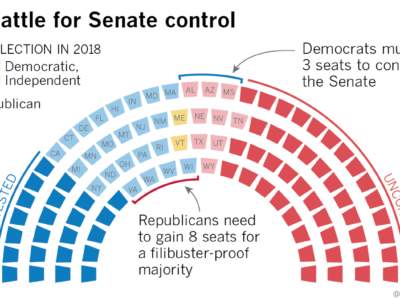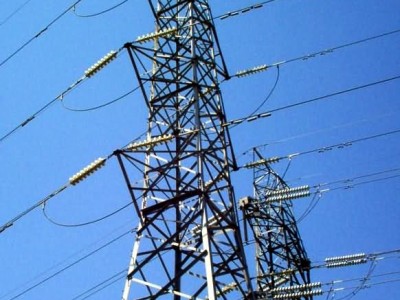Region: National
NEWSFLASH: Pruitt Resigns
Under pressure, Pruitt finally exits EPA.
President Trump tweeted today that he had accepted Scott Pruitt’s resignation and appointed Robert Wheeler as Acting Administrator of EPA. Wheeler is likely to be just as bad on policy and could well be more competent and effective than Pruitt. But Pruitt was a disgrace to the office, and it is good to see him …
Continue reading “NEWSFLASH: Pruitt Resigns”
CONTINUE READINGTrump’s Dubious Bailout
It’s unlikely that a bailout will have more than a temporary effect. Assuming it holds up in court, that is.
Trump plans to use national security powers to prop up uneconomic coal and nuclear plants. Rick Perry says the government is trying to figure out the cost of this effort – but he doesn’t seem to care what that cost would be. After all, he says, “You cannot put a dollar figure on the cost to keep …
Continue reading “Trump’s Dubious Bailout”
CONTINUE READINGThe Chevron Doctrine: Is It Fading? Could That Help Restrain Trump?
The Supreme Court may be shifting the rules for reviewing agency interpretations of statutes.
In June, the Supreme Court decided two cases that could have significant implications for environmental law. The two cases may shed some light on the Court’s current thinking about the Chevron doctrine. The opinions suggest that the Court may be heading in the direction of more rigorous review of interpretations of statutes by agencies like …
Continue reading “The Chevron Doctrine: Is It Fading? Could That Help Restrain Trump?”
CONTINUE READINGPublic Lands Watch: Sage Grouse Plan Revisions
BLM and Forest Service produce draft environmental impact statements for plan revisions
I wrote in the fall about the Trump Administration’s efforts to weaken protections for sage grouse on federal public lands. The next step in that process is currently ongoing – draft environmental impact statements (EIS) for revisions to land management plans for BLM and Forest Service lands. Those EISs are required by the National Environmental …
Continue reading “Public Lands Watch: Sage Grouse Plan Revisions”
CONTINUE READINGEnvironmental Strategies for the Post-Kennedy Era
How do we make environmental progress despite an increasingly unsympathetic court?
Ann Carlson wrote an excellent post about how Kennedy’s departure might impact some key environmental issues. His retirement means that the Supreme Court will move even further to the right and stay there at least until one of the conservatives departs (maybe Thomas, the oldest). The new pick is likely to be another Gorsuch, which …
Continue reading “Environmental Strategies for the Post-Kennedy Era”
CONTINUE READINGMemo to Staff: Eliminating Cl***** Ch****
Also, please delete all references to global w***ing.
MEMORANDUM To: All Department Staff From: The Secretary Re: Eliminating Cl***** Ch**** As you know, it is this Administration’s policy to eliminate all references to Cl***** Ch**** from government documents. This policy has been unevenly implemented, but I have informed the President that we are adopting a zero-tolerance approach. All use of the “double-c …
Continue reading “Memo to Staff: Eliminating Cl***** Ch****”
CONTINUE READINGGetting to Zero Fatalities
Eliminating traffic deaths and vehicle emissions by 2050? Not as crazy as you might think.
Could we have a transportation system with zero deaths from car crashed and zero emissions? That seems utopian but it’s not as crazy as it sounds. Even if we don’t get all the way to zero, we could get much closer than you might think. In The Road to Zero, RAND researchers provide a roadmap …
Continue reading “Getting to Zero Fatalities”
CONTINUE READINGAgency U-Turns
Policy reversals are likely to be more frequent in an increasingly polarized society. How should courts respond?
The Trump Administration is doing its best to wipe out Obama’s regulatory legacy. How will the courts respond to such a radical policy change? The philosophical clash between these last two Presidents is especially stark, but this is far from being the first time that agencies have taken U-turns. This is the fifth time in …
Continue reading “Agency U-Turns”
CONTINUE READINGSenate Races and the Environment
Eight races will determine the balance of power in the Senate.
There’s a lot riding on the 2018 elections. The midterms will decide whether the GOP has a large enough majority to pass legislation weakening environmental protection, whether either house of Congress is willing to investigate misconduct by Pruitt and others, and who Trump can appoint to agencies and the judiciary. I’ll post more detailed information …
Continue reading “Senate Races and the Environment”
CONTINUE READINGThe Puzzle of Capacity Markets
What are capacity markets and why do they matter?
If you live in the Midwest, East of the Mississippi and North of the Mason-Dixon line, or in Arkansas or Louisiana, the companies that generate your electricity are covered by what are called capacity markets. I’ll bet you didn’t know that. That’s actually part of the problem, because there’s very little transparency and hence little …
Continue reading “The Puzzle of Capacity Markets”
CONTINUE READING










